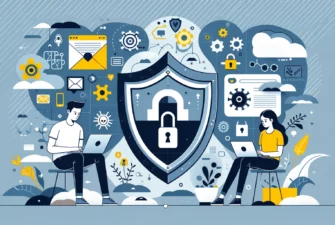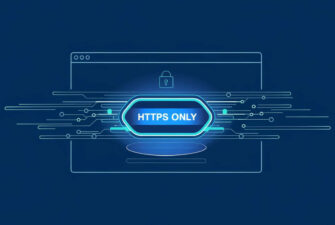SSL certificates have become an essential security element for any site. With HTTPS now mandatory, stumbling upon an unsecured website has become such a rare occurrence that users are now suspicious of the lack of security standards and professionalism whenever they visit a site over HTTP.
With Chrome and other popular browsers flagging HTTP websites as Not Secure, sites of all types and sizes are in a hurry to install an SSL certificate and migrate to HTTPS. However, one particular category isn’t rushing the HTTPS adoption.

3 in 5 Politicians don’t use HTTPS
According to a recent study by Comparitech, three out of five politicians’ websites don’t protect sensitive data. Comparitech researched the personal websites of more than 7,500 politicians in 37 countries worldwide. Their findings revealed a worrying trend – more than 61% of those websites don’t use basic HTTPS encryption.
Worse still, about half of politicians’ websites collect personal information via login pages, email opt-in forms, and newsletters. Without an SSL certificate, all the private data remains in plain text and becomes an easy target for cyber-criminals.
Now, we all know that politicians are busy running their countries and don’t do web administration, but what about their website admins?
Just like politicians constantly polish their speeches and campaigns, a politician’s website should look immaculate. An SSL certificate won’t bring votes, but it’s crucial to keep politicians’ image intact. Here are just a few things that could happen to all those unsecured websites:
- Hackers can use Man-in-the-middle attacks to intercept and steal visitors’ sensitive data such as names, addresses, passwords, payment info, etc.
- Attackers can create or duplicate a fake phishing site and disguise themselves as a trustworthy politician.
- Attackers can employ third-party content injection to modify data in connection.
An SSL certificate seamlessly eliminates all these threats by encrypting the data in transit and authenticating the website. Nowadays, getting an SSL certificate is quick and easy. With so many types and brands available, whether you’re a blogger or a politician, there is no excuse to not use HTTPS.

Below you’ll find the key findings of Comparitech’s study.
The top five countries that don’t use HTTPS
- South Korea – 92.31% of politicians’ websites weren’t secure
- Poland – 91.16% of politicians’ websites weren’t secure
- Hungary – 90.91% of politicians’ websites weren’t secure
- Canada – 86.25% of politicians’ websites weren’t secure
- Malta – 86.21% of politicians’ websites weren’t secure
Top-bottom five countries that don’t use HTTPS
- Denmark – 41.3% of politicians’ websites weren’t secure
- Australia – 37.44% of politicians’ websites weren’t secure
- Germany – 31.92% of politicians’ websites weren’t secure
- United Kingdom – 30.65% of politicians’ websites weren’t secure
- United States – 26.22% of politicians’ websites weren’t secure
While politicians in developing countries are more likely to have unsecured personal websites (74.98%) than those in developed countries (64,46%), the likes of Canada, South Korea, and Poland topping the “Without HTTPS” chart is quite baffling.
To see if your country is one of those 37 researched, and how the politicians’ website scored, go to Comparitech’s study page.
Save 10% on SSL Certificates when ordering from SSL Dragon today!
Fast issuance, strong encryption, 99.99% browser trust, dedicated support, and 25-day money-back guarantee. Coupon code: SAVE10

























